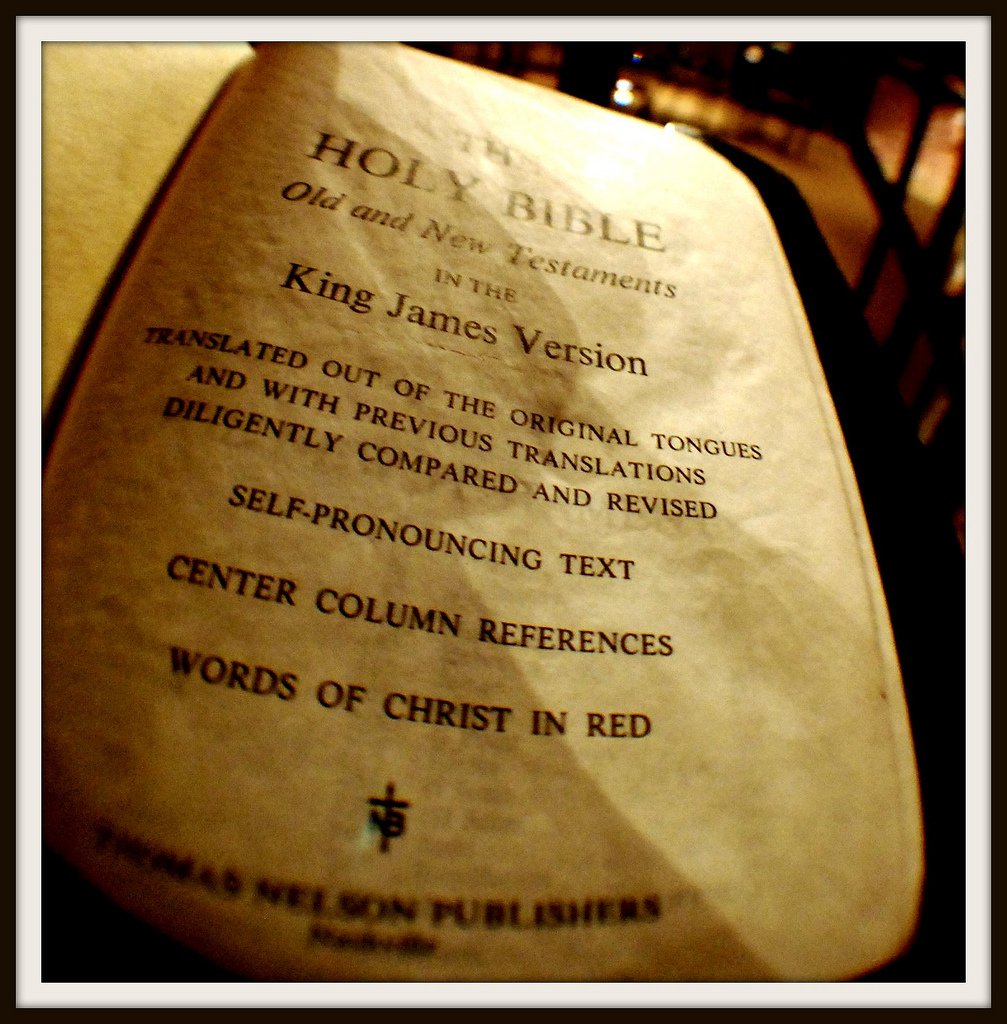Thou Shalt Not Only Use the King James Version
My first Bible growing up was the King James version. I did not only use the KJV, but I memorized all my verses in the King James version and I learned much reading through its stories. Then, one day my parents got me the New King James version. It was a lot easier to read, and I memorized more verses. Years later, in high school I switched to the New American Standard Version. After college, I decided to make the switch to the English Standard Version. Thus, I have run the version gamut.

In high school I first ran across people who said that you should only use the King James Version. This always struck me as a bit odd, but I better understand now where they were coming from.
It is important to differentiate between two groups. First, there are people who only use the KJV because that is their preferred version. Second, there are people who only use the KJV because they believe that everyone should only use the KJV!
Those who belong to the second group usually do so because they believe the KJV is inspired by God. Or, they believe the KJV is God’s only authoritative version. With this post, I want to start a small series which discusses the problems in holding to a “thou shalt only use the KJV” view.
First, the translators of the KJV were common men who worked hard at producing a common translation.
When the KJV was originally translated, the translators were very forward about their purposes. They worked with 15 translation principles to help guide them in the translation of the Greek and Hebrew. Some of the rules they worked with were as follows:
- The Bishop’s Bible was to be followed and altered as little as possible. (The Bishop’s Bible was the previous English version, and if there was no need to change it, it was to be left as stated there).
- Traditional vocabulary was to be used (for example: “church” instead of “congregation”).
- If the Bishop’s Bible was not the most accurate wording, five other translations were to be consulted: Tyndale, Matthew, Coverdale, Whitchurch, and Geneva.
Clearly these were very gifted and brilliant men, yet they were working according to the normal principles of translation work. They consulted other previous English translations and wherever possible, they would use that wording. Hence, the translators’ accomplishments should not be elevated to inspired status. Yet they should be appreciated as a great work.
Second, there is no evidence that the translators of the KJV were inspired by God.
In light of the previous point, we need to discuss the translation philosophy a bit more. The goal of the translators of the KJV, as stated in “The Translators to the Reader” section of the original KJV is as follows:
We never thought … that we should need to make a new Translation, nor yet to make of a bad one a good one…, but to make a good one better, or out of many good ones, one principal good one.”
It was never the intent of the translation committee to demonstrate that the other translations were poorly done. Rather, they wanted to make the best translation possible out of the abundance of good translations already available to the English speaking community.
Further, if the 1611 KJV was inspired, then we should expect there to be no errors in the text of the 1611 version of the KJV. However, a comparison of the original 1611 KJV and today’s modern KJV reveals many corrections that have taken place since the original KJV’s publication. This is a significant enough point that in the next post we will look at some of the changes that the KJV has undergone since its original publication.
photo credit: Joshua Daniel O. via photopin cc
Note: This post originally appeared on July 9, 2014 and has been edited and reposted.
One Comment
Edward A Stewart
In 1st Corinthians 1:10 “……that ye all speak the same thing and that there be no divisions among you; but that ye be perfectly joined together in the same mind and same judgement”